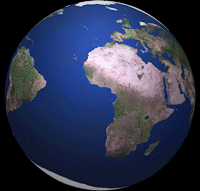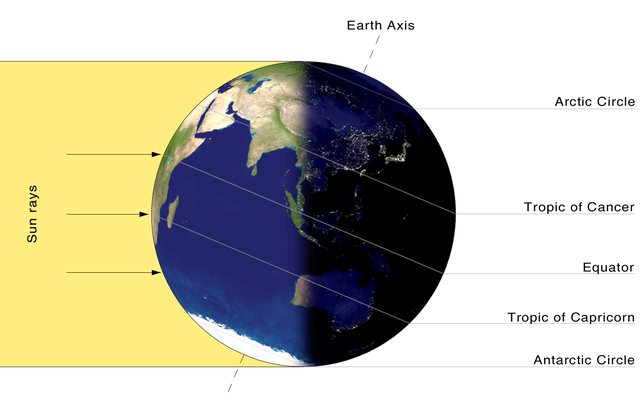When the earth faces towards the sun, that part of the sun has "daytime". The part of the earth facing away from the sun will have "night".
The earth is shaped like a ball:
As it spins, different parts of the earth are lit up by the sun. If we laid out the earth's surface so it was flat, day and night would look like this:
You can find out where the sun is shining on the earth right now at either of these sites:
The earth spins, but it is "tilted" while it spins. When the top of the earth ("north") is leaning towards the sun, days are longer and warmer. That's summer!
But when the bottom of the earth is closer to the sun, then we have winter: our days are shorter and colder.
Sort of! They are very different from the rhythm of Planet Earth.
Mercury is closest to the sun, but it is also the smallest planet and its "spin" is very slow. Mercury goes around the sun once every 88 days (as we measure them on Earth), but it spins once every 58 days. If you stood on one spot on Mercury, you would only have one "sunrise" every two "Mercurian" years!
Just because it's big doesn't mean it's slow. It spins very, very fast. In under ten hours, it has already had a whole "day". This fast rotation also makes it bulge out around its equator.
- Wikipedia has detailed articles about Daytime (why do they call it "daytime" instead of just "day"?) and Night
- "How Stuff Works" has a very short article
- Explore what "day" and "night" mean on other planets with the help of NASA





Useful